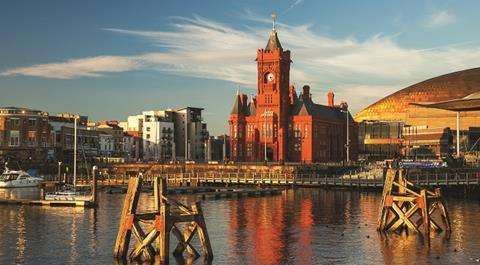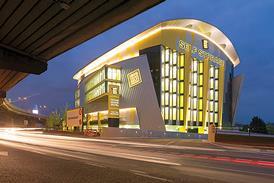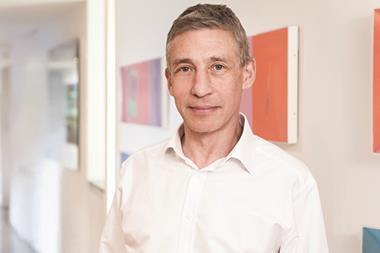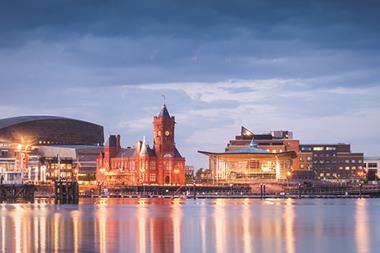We recently announced the winners of a student competition to find Wales’s brightest design talent. The winning students - James Gould (University of South Wales) and Emily O’Reilly (Carmarthen School of Arts) - are now developing furniture and fabric designs for the new ID:SR Sheppard Robson-designed BBC Wales Broadcast Centre in Cardiff.

This is part of our team’s concerted effort to promote a locally sourced agenda throughout this major project, with a drive to find the best Welsh materials, furniture and talent.
‘Locally sourced’ is a common term used to promote the virtues of everything from food to wool production. But what are the benefits when applied to workplace design? And how do we harness these while remaining open-minded about what the rest of the country and world has to offer?
I am not advocating an insular approach that is constrained by borders, but rather striking a responsible balance between the procurement of local, national and international talent and manufacturing.
When you think of ‘locally sourced’, perhaps the first thing you think of is the lower carbon emissions produced from reduced transportation. This is important, but so are two other factors: sustainability and social value.

An example of this is Welsh wool producer Melin Tregwynt, whose sourcing of raw materials and manufacturing process are co-located. By using the wool at BBC Wales, we are part of the area’s wider social and economic ambitions, helping reverse a trend for wool to be sourced from Australia and New Zealand while re-establishing Wales as a centre for wool production. This is an investment in the communities that will help BBC Wales to thrive.
The occupier also benefits from this tight-knit supply chain. Specifying Welsh products for BBC Wales creates a smaller production chain, a process we have cultivated with ID:SR Sheppard Robson on other projects, such as BBC North. We have found this local approach to manufacturing improves the quality of the spaces we create for our staff by helping designers and clients forge closer connections to the materials and products they specify.
Collaborative approach
Working with local businesses makes it easier to have regular visits to your suppliers’ workshops and studios. This increases dialogue and scrutiny over what is being specified and also encourages more face-to-face communication.
Often the result of this is a method of specification that is not just transactional but an iterative, more discursive process where you have a clearer idea of what you are getting, better quality control and also the ability to fine-tune products so they are tailored to your requirements. Our student competition exemplifies this collaborative approach to creating a specific product that is shaped to the brief and the culture of an organisation.
There is also added value in creating a strong local narrative for your development. An authentic and genuine interest in the culture and identity of the area you are a part of helps embed a project within its community. This encourages a sense of pride and can be a powerful way of communicating that your project might be constrained physically by its site but the impact and ambition is spread much wider.
Local sourcing is supported by a range of other design ideas that help cultivate this more civic identity for workplace developments.
These include reception areas that are bustling, social spaces that blur the line between private and public, while creating a ‘shop window’ of activity. Much more thought is also being put into the public realm around our buildings and how these can be used to create a more outward-looking culture that engages the local community.
As we start working with the student competition winners, it is a good time to reflect on how effective and enjoyable it is unearthing new talent and how a procurement process is an opportunity to add a depth and richness that have tangible benefits to how people feel and respond to the space they work in.






























No comments yet